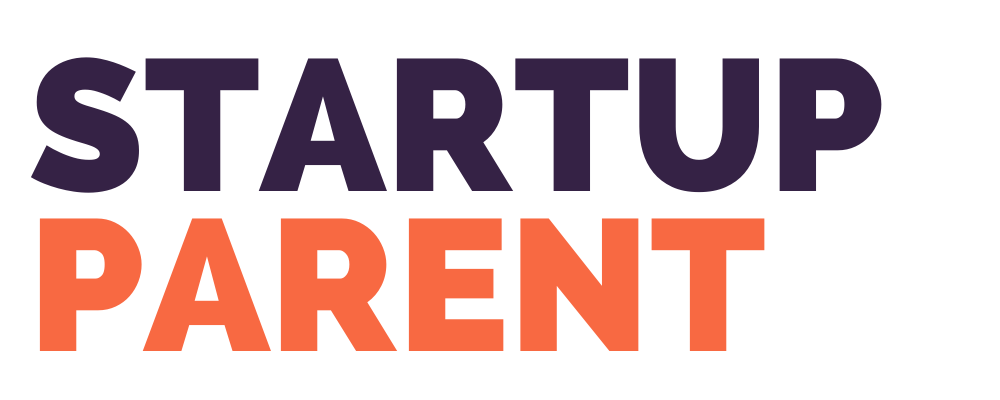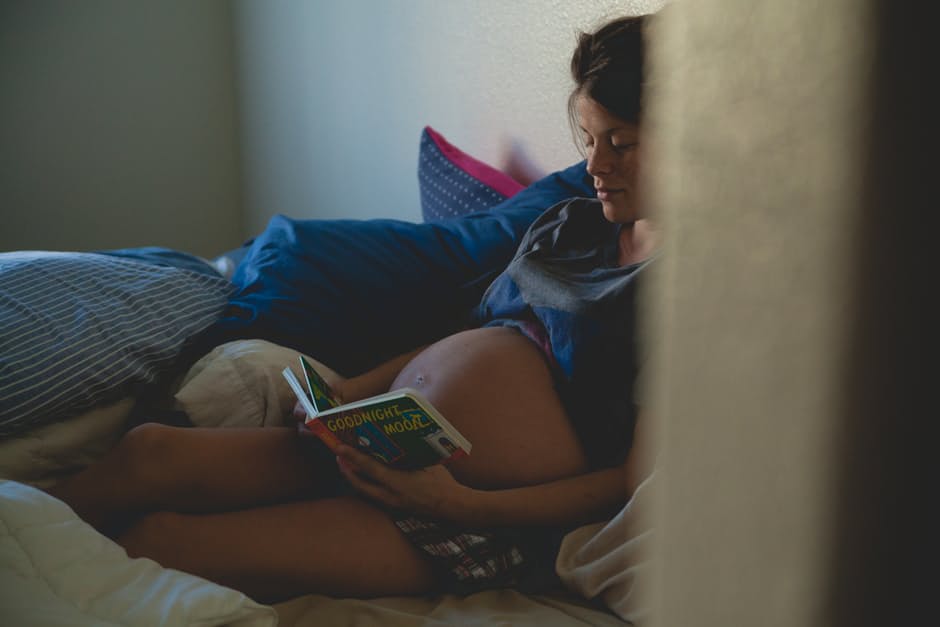How Arianna Taboada designed her own maternity leave
Previously we released the first half of our interview with Maternal Health Consultant Arianna Taboada on how startups and business owners can re-think maternity leave. Today, we’re digging into what it looked like for her to design her own maternity leave policy as an entrepreneur, and what it took to make it work.
What did the transition back into work look like for you?
ARIANNA: I took six weeks almost fully off and then slowly ramped up my work load through four months postpartum.
Part of my business model is consulting for health organizations, so those were active projects that I had to negotiate time off, when I’d be available on email but not back at meetings and so on. The six weeks I took off with my one-on-one clients coincided with the six weeks where I was minimally available to check in at these organizations.
A large piece of the puzzle was child care. I arranged for two days a week at four hours per day once I was 6 weeks out. I then scaled up my work hours every few weeks. Initially, I went from two half days, to three half days. Then I moved from half days to full days with breastfeeding breaks in between.
When I added a 4th day at four-month mark, I realized that I didn’t want to go back to regular hours. It’s important for me to note that I had the privilege to do this. We can frame that as opportunity or privilege — but I’m a big fan of slowly scaling back up slowly. Zero to 40? I feel for all the women who have to do it.
It’s tremendously hard.
My training as a researcher is around framing issues that have to do with maternal health as obstetric violence, which is used widely in Latin America but not at all in the US. So, obstetric violence is used to talk about low quality of services, about when women fall through the cracks with postpartum mental health issues. Basically it comes down to: too much too soon, or too little too late. Which directly applies to maternity leave — it can be framed as a obstetric violence issue as a way to help people pay attention.
My training as a researcher is around framing issues that have to do with maternal health as obstetric violence.
The fact that people think that maternity leave is a “vacation” is astounding.
Yes!
Your child is now one, what does work look like for you these days?
My “full-time” gig is five days a week now, but looks really different than a traditional 9-to-5 Monday through Friday workweek. Right now I work half days on Saturdays and then four days of the regular work week, but even those days are atypical. I personally work best in the morning. So I have a block of time from 7AM to 10AM that I work, then baby time, then another block of work time. I’m basically able to get 6 to 8 hours of work done over a 12-hour time period. I have child care from early morning until three in the afternoon and then I am usually getting the last chunk of work done once my partner gets home in the evening or while my son is napping in the afternoon.
Also, I have to note that one thing that has really saved my ass is having my childcare worker take care of some basic domestic duties: food prep, basic cleaning, etc. It’s huge.
What about being pregnant? What was your pregnancy experience like?
In a word, not fun. I spent about 16 weeks next to the toilet. I’d never felt so unproductive and not like myself ever before. That was the first experience I’d had personally though I’d been in the field of maternal health since 2002. My problem was not having not enough information, but maybe having too much and I found myself over analyzing everything.
I had midwifery care in Mexico. It’s not really legal, but it falls under the guise of protected indigenous customs, so midwives are able to practice sort of under the radar. At one point my midwife told me to “stop reading.” And she made a very interesting, part joking, statement that “maternity leave should really start when you’re pregnant and go through the first year.” We laughed, but so much of the physical and psycho-emotional aspects of becoming a mother that came up, came up right away in my early pregnancy.
What I knew from my work in maternal mental health is the concept of grief and loss tied to motherhood— that no one talks about. That for all the things you gain, you have to lose so much. And how do you grief that? How do you mourn that? I felt like I really faced the grief early on because I missed feeling like myself.
I think what I knew from my work in maternal mental health is the concept of grief and loss tied to motherhood — that no one talks about. But for all the things you gain, you have to lose so much. And how do you grief that? How do you mourn that?
Can you speak more about grief and loss both in pregnancy and new motherhood?
What I knew prior to my pregnancy about grief and loss was a mental health framework called IPT, or Interpersonal Psycho Therapy. It’s been widely tested with pregnant and vulnerable populations. It’s not, however, well known in affluent and the “worried well” population, or the women from the outside that have it all together.
The framework is about recognizing the stark shift in an identity or experience and what it means to be able to hold both the excitement and promise of that shift, and also to really struggle with the transition in identity and role, specifically.
In pregnancy and motherhood, your role your partner, your family, in your company, in your business, and the distribution of your time and energy is what we’re really talking about. IPT excels at helping people process that transition while you’re in the thick of it. That’s what I knew as a health professional ahead of time, but as an individual living it, I just thought “this sucks.” And I was someone who had so many tools and resources!
At the time I only had one friend that was in the same exact space in pregnancy and motherhood as me—her kid is five weeks older than mine. Luckily she was able to recall her experiences well enough for the two of us to have effective conversations.
Even now, just a year out of pregnancy, I’m not in that head space anymore to be able to have that conversation. I know that at the time it felt all-encompassing. “It sucks, why is this happening,” it’s all fear based. But even a few months out it becomes hard to remember.
It’s this weird paradox that pregnancy is so isolating and lonely and it’s so universal.
Yes, which is why I love the Centering Pregnancy model. It’s an evidence-based clinical practice model that’s been used mostly with immigrant, linguistic minority women. What it does is it takes all the standard prenatal care and turns it into a group model. So you’re in a group setting and there are clinicians there, but then there is also this whole time devoted to talking about what’s going on with everyone.
I had this experience: I knew that maternity leave would be 12 weeks where I’d be gone. But we didn’t talk about how I’d be going through this profound change during that time, and when I came back, I was going to be a totally different person.
Why don’t we have that conversation?
In Mayan culture and their traditional midwifery system this is called “la pequena muerte” or “the little death.” Meaning that when you give birth, the person you were dies and you become a new person. All cultures that have more of a community model around the transition to motherhood have it built in that you have time of not doing and just being. You have lots of people to help you process, time away from your duties and lots of resources available to you.
The grief and loss tied to motherhood. No one talks about this.
I felt like I faced the grief really early on. I missed feeling like myself, and getting out of the house when I wanted, and trying to drive… Once, I got in the car three times, I threw up every time, and I just couldn’t leave. Pregnancy was not fun until about 16 weeks, until the end, when you’re tired and huge at the end.
There is so much also around the pressure to “perform” motherhood—to be perfect in everything from work to breastfeeding.
The pressure of being able to perform is something I bring up a lot in my work with clients. I tell them, let’s think about the skill set that you’ve acquired in your business or as a professional. Let’s think about the learning curve and all it took for you to get to where you are now. Let’s also think about the shifts or transitions you’ve made in your work and how you don’t do it overnight or alone. We need to think of motherhood in the same way: frame it as a learning curve; frame it as a transition. Get yourself professional support, get yourself time, get realistic metrics to check in with progression.
It’s odd because you get the title of “mother” in an instant. In one moment you’re pregnant and in the next you’re a mom. But let your identity as a mother follow what you learned as a business owner. Let yourself become the mother that you’re going to become as opposed to being this archetypal mother from the beginning.
Let yourself be an “entry level mother.”
Right! The process of becoming is not something we attach ourselves well to. It would just be so helpful for this idea of “being a mother” to be something that you are allowed to process and work through and grow into over time.
###
To follow more of Arianna’s work and practice, visit http://www.ariannataboada.com/ to learn how to navigate new motherhood like a boss.
###
Arianna Taboada is a … you can find her work …
ABOUT THIS SERIES:
This essay is part of the Startup Pregnant Interview Series asking women and men about what it means to birth new businesses, grow in leadership at work, and bring new people into the world.
These interviews seek out the personal details as a way to inspire new thinking about what it means to be pregnant, to go through physical and emotional transformations, what it means to be your most creative self, and how that influences work as we understand it today. Outdated cultural thinking about what work looks like and traditional gender roles leave both men and women tired and searching for a different kind of meaning. Read the complete interview series here on the blog, sign up to join our mailing list, or stay in touch with Startup Pregnant on social media.



Great article. This is such an important topic and I love Arianna’s authenticity! I found out about your website through her and am super excited to be supporting your podcast on Patreon! My husband and I are almost 5 months pregnant and have a startup that will hopefully launch next year! Thank you SO MUCH for this website and community!
Sincerely,
Ciara